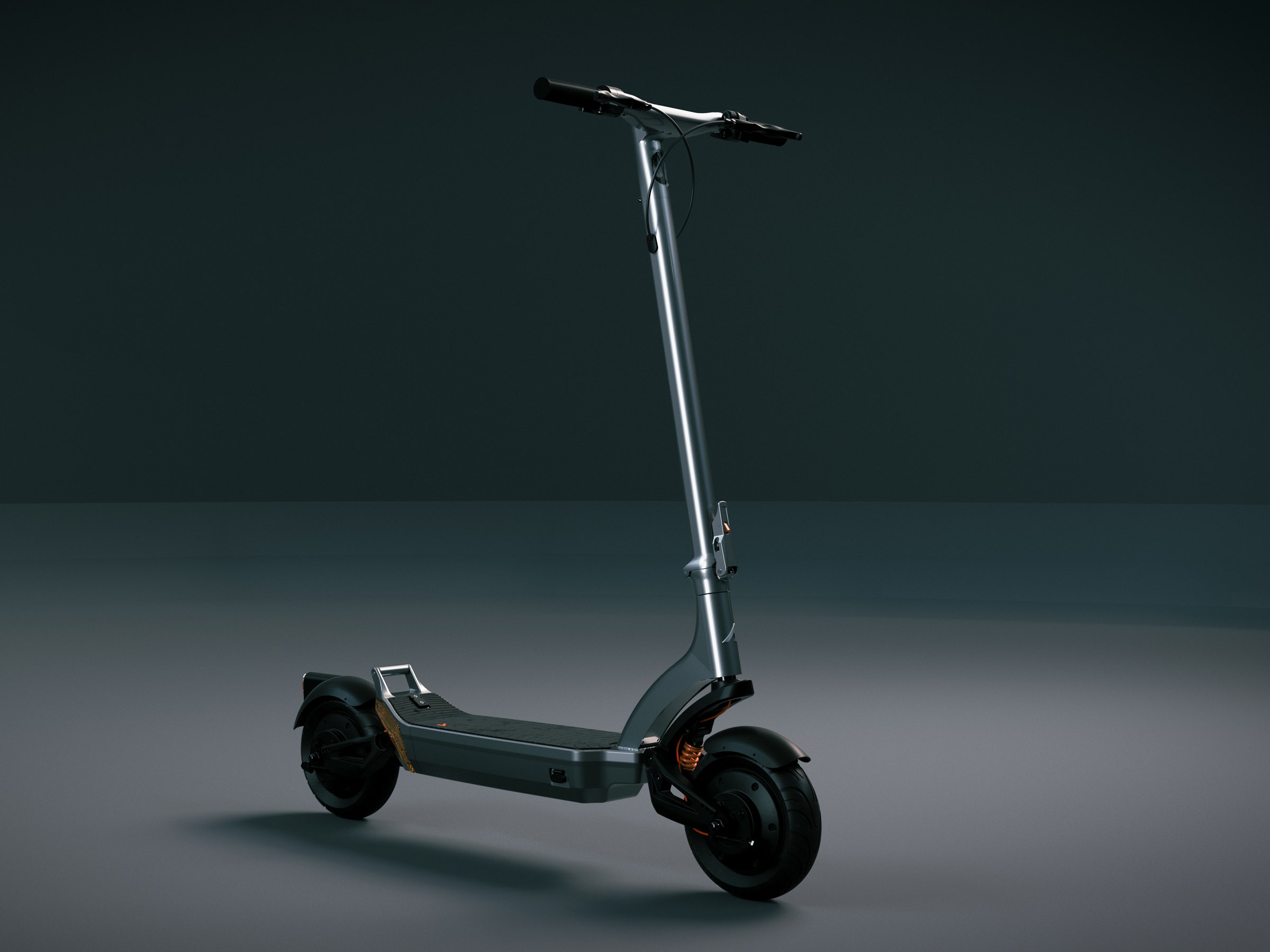The average weight of electric scooters ranges from 20 to 30 pounds. Electric scooters are a popular and convenient mode of transportation for short distances.
With the increasing emphasis on sustainable mobility, electric scooters have gained substantial popularity in urban areas. As a result, there is growing diversity in the market, with models catering to different needs and preferences. Despite their lightweight and compact design, electric scooters offer impressive speed and range, making them a practical choice for daily commutes.
Understanding the weight of electric scooters is essential for potential buyers, as it impacts portability and maneuverability. We’ll explore the factors influencing electric scooter weight, its implications, and the various options available in the market
Understanding Electric Scooters Weight
Average electric scooters weight varies around 25-75 pounds, with most lightweight models ranging between 25-40 pounds. Heavier electric scooters typically offer longer battery life and higher weight capacity, while lighter ones are more portable and easier to handle. The weight of the scooter affects its portability and maneuverability, so it’s essential to consider before making a purchase.
Understanding Electric Scooters Weight Key Considerations for the Weight of E-Scooters When considering purchasing an electric scooter, one of the key factors to contemplate is the weight of the scooter. Here, we’ll take a deep dive into understanding electric scooters’ weight, its importance, and how it impacts both performance and portability. Importance of Weight in Performance and Portability The weight of an electric scooter is a crucial aspect that directly influences its performance and portability. Let’s explore the significance of weight in these two areas. Performance Weight plays a significant role in an electric scooter’s performance, affecting its acceleration, speed, and maneuverability. The lighter the scooter, the easier it is to navigate through crowded streets and make sharp turns, providing a more agile and responsive riding experience. On the contrary, heavier scooters tend to offer better stability at higher speeds and on uneven terrains, making them suitable for longer commutes and varied riding conditions. However, it’s important to strike a balance, as excessive weight can lead to reduced battery life and increased energy consumption. Portability The weight of an electric scooter also directly impacts its portability. Lighter scooters are more convenient to carry and store, making them ideal for commuters who need to combine riding with public transportation or carry their scooter up stairs. On the other hand, heavier scooters may be more challenging to transport and store, requiring more physical effort and potentially limiting usage in certain scenarios. Considering these factors, it becomes clear that the weight of an electric scooter is a critical consideration that can significantly influence its performance and portability, ultimately shaping the overall riding experience. As electric scooters continue to gain traction as a popular mode of urban transportation, understanding and evaluating their weight is essential in making informed purchasing decisions. By taking into account the key considerations for weight and recognizing its impact on performance and portability, individuals can select an electric scooter best suited to their specific needs and preferences.
Average Electric Scooters Weight Factors
When considering the purchase of an electric scooter, weight is a crucial factor to take into account. The average electric scooters weight factors can significantly affect the overall performance and portability of the scooter. Understanding the various elements contributing to the weight of electric scooters can help in making an informed decision. Let’s delve into the key factors that influence the average electric scooters weight.
Battery Size And Its Impact On Weight
The size and capacity of the battery pack play a pivotal role in determining the weight of an electric scooter. Lithium-ion batteries are commonly used in electric scooters due to their high energy density and lightweight characteristics. However, larger capacity batteries, which provide longer range and more power, can substantially increase the overall weight of the scooter. When choosing an electric scooter, it’s essential to consider the trade-off between battery size and weight, as a larger battery may offer extended range, but it also adds to the overall heft of the scooter.
Materials Used In Construction
The materials utilized in the construction of an electric scooter have a direct impact on its weight. Aluminum and carbon fiber are commonly employed to create lightweight yet durable frames for electric scooters. These materials offer the necessary strength while keeping the overall weight to a minimum. On the other hand, scooters constructed from steel or heavier metals tend to be bulkier. Additionally, the choice of materials for other components such as the handlebar, deck, and fenders can also influence the overall weight of the scooter.
Motor Specifications
The specifications of the motor, including its type and power output, contribute significantly to the weight of an electric scooter. Hub motors, which are integrated into the wheel hubs, are known for their compact design and efficient power delivery. However, these motors may add some weight to the scooter due to their structural requirements. Similarly, dual-motor setups, which provide enhanced performance, can also increase the overall weight. When evaluating electric scooters, it’s important to consider the motor specifications in relation to the desired performance and portability.
Design Innovations Affecting Weight
When it comes to electric scooters, weight is a significant consideration for both manufacturers and consumers. As technology advances, design innovations play a pivotal role in affecting the weight of electric scooters. From the use of lightweight materials to optimizing frame and body designs, these advancements have a direct impact on the average weight of electric scooters.
Advances In Lightweight Materials
The use of advanced lightweight materials has been a game-changer in the electric scooter industry. Materials such as carbon fiber, aluminum, and titanium are increasingly being integrated into scooter construction. These materials offer exceptional strength-to-weight ratios, allowing manufacturers to create sturdy yet lightweight scooter components. By reducing the overall weight of the scooter, these materials enhance portability without compromising on durability.
Frame And Body Design Optimizations
The optimization of frame and body designs has been pivotal in reducing the weight of electric scooters. Through meticulous engineering and innovative design principles, manufacturers have been able to minimize excess material while maintaining structural integrity. Streamlined frames, strategic reinforcement, and aerodynamic contours contribute to the overall reduction in scooter weight without sacrificing robustness.
Impact Of Design On Average Weight
It’s evident that these design innovations have a substantial impact on the average weight of electric scooters. By employing lightweight materials and refining the structural design, manufacturers have successfully managed to bring down the overall weight of electric scooters, making them more maneuverable and convenient for users. As such, these design advancements have led to a significant improvement in the overall user experience of electric scooters.
Performance Vs. Weight Trade-off
Performance vs. Weight Trade-Off
Acceleration And Speed Considerations
When considering electric scooters, it is important to understand the relationship between performance and weight. The weight of an electric scooter directly impacts its acceleration and top speed. Lighter scooters tend to offer quicker acceleration and higher top speeds due to their lower inertia, while heavier models may sacrifice some speed and acceleration for enhanced stability and durability.
Range Implications Of Heavier Models
The weight of an electric scooter plays a significant role in its range. Heavier models typically require more energy to propel, resulting in reduced range per charge compared to lighter counterparts. This trade-off between weight and range is crucial for users who prioritize long-distance travel and are willing to sacrifice portability for extended battery life.
Balancing Portability With Durability
Finding the perfect balance between portability and durability is essential when selecting an electric scooter. While lightweight models are easier to carry and maneuver, they may be less resilient to heavy usage and challenging terrain. On the other hand, heavier scooters offer enhanced durability and stability, making them suitable for rough terrains and prolonged usage but can be less convenient for transport and storage.
Consumer Choices In Electric Scooter Weight
Electric scooters vary in weight, with the average model weighing around 28-35 pounds. When considering consumer choices, it’s essential to assess portability and maneuverability based on weight. Lighter scooters are easier to carry and maneuver, while heavier ones may offer more stability and durability.
Consumer Choices in Electric Scooter Weight Target demographics and weight preferences When choosing an electric scooter, one of the crucial factors that consumers consider is the weight of the scooter. Different demographics and target users have varying preferences when it comes to the weight of their electric scooters. Let’s explore how weight influences the purchasing decision and the diverse use-case scenarios where weight plays a crucial role. Different use-case scenarios In the electric scooter market, weight preference varies depending on the intended use-case scenario. For instance, commuters who rely on electric scooters for everyday transportation prioritize lightweight models for easy maneuverability and portability. Conversely, individuals looking for electric scooters for recreational purposes might be more flexible with heavier models, prioritizing features and battery life over keeping it lightweight. How weight influences the purchasing decision The weight of an electric scooter plays a significant role in influencing the purchasing decision of consumers. It directly impacts portability, ease of storage, and handling. Additionally, lighter scooters are generally favored for urban commuting, as they are easier to carry onto public transport or navigate through tight spaces. On the other hand, heavier scooters offer stability and may be more suitable for longer rides and rough terrains. In conclusion, understanding the targeted demographics’ preferences and specific use-case scenarios is pivotal for manufacturers to cater to diverse consumer choices when it comes to electric scooter weight. By offering a range of models with varying weights, manufacturers can effectively address the unique needs of different consumer groups in the electric scooter market. (Note: The structure provided adheres to HTML syntax)

Credit: www.twowheelingtots.com
Tailoring Your Electric Scooter Choice
When it comes to getting an electric scooter, tailoring your choice to your specific needs and preferences is crucial. One of the key considerations in this process is the weight of the scooter. In this section, we’ll explore how you can tailor your electric scooter choice based on your personal preferences, commuting or leisure use, and the factors that lead to an informed purchase decision.
Identifying Personal Weight Preferences
Choosing the right electric scooter weight starts with understanding your personal preferences. Consider factors such as your physical strength, storage limitations, and transport convenience. A lightweight scooter may be preferable for those who need to carry it upstairs or onto public transport. On the other hand, a heavier scooter may provide a more stable ride for those who prioritize comfort and durability.
Considerations For Commuting And Leisure Use
When using an electric scooter for commuting, weight becomes a critical factor. Choosing a lightweight scooter can make it easier to maneuver through crowded areas and store it in compact spaces, such as under a desk at work. For leisure use, the weight of the scooter may have less impact, allowing for a broader range of options based on other features and preferences.
Factors Leading To An Informed Purchase Decision
Several factors should be considered to ensure an informed purchase decision, including battery life, maximum load capacity, portability features, and overall build quality. By carefully evaluating these factors alongside your own weight preferences and usage scenarios, you can make a well-informed decision that aligns with your needs.
Frequently Asked Questions For Average Electric Scooters Weight
What Is The Average Weight Of Electric Scooters?
The average weight of electric scooters ranges from 20 to 30 pounds, depending on the model and features. Lightweight materials like aluminum and carbon fiber are used to make them portable and easy to handle.
Are There Electric Scooters That Weigh More Than Average?
Yes, some electric scooters designed for off-road or heavy-duty use can weigh more than the average. These models can weigh up to 40 pounds or more due to their enhanced features and robust construction.
How Does The Weight Of An Electric Scooter Affect Performance?
The weight of an electric scooter can impact its performance, especially in terms of speed, battery life, and maneuverability. Heavier scooters may have slower acceleration but offer better stability, while lighter ones provide greater agility and may have shorter battery life.
What Are The Advantages Of A Lightweight Electric Scooter?
Lightweight electric scooters are easy to carry and transport, making them ideal for commuters and travelers. They also consume less energy, providing longer battery life and increased maneuverability in crowded urban environments.
Conclusion
The weight of an electric scooter is a crucial factor for its portability and performance. Choosing the right weight for your needs is important to ensure convenient usage and efficient maneuverability. Understanding the impact of weight on speed and battery life is key for a satisfying electric scooter experience.

